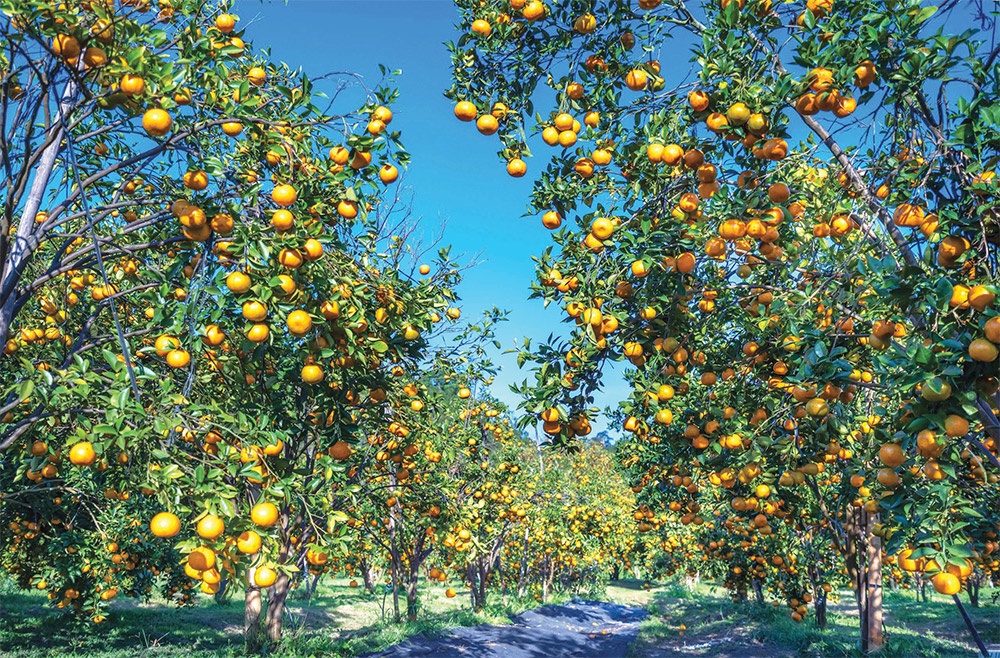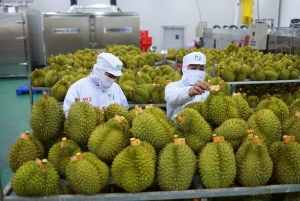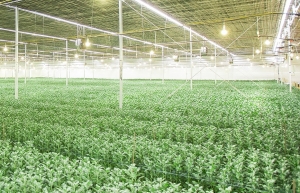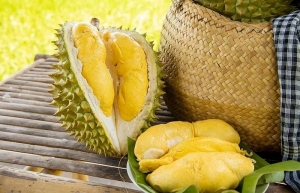Public-private focus picks up steam for greener agriculture
At a plenary meeting on green transformation and innovation in agriculture last week, held by the Ministry of Agriculture and Rural Development (MARD) and the Partnership For Sustainable Agriculture In Vietnam (PSAV), several representatives of task forces under the PSAV shared their plans and successful models in applying innovation and promoting green and low-emission agriculture development and their contribution to this process.
Many well-known foreign-invested agricultural firms are involved in the task force on public-private partnerships (PPPs), such as Pepsico Vietnam, which is the task force’s main representative in terms of fruit and vegetables.
 |
| Public-private focus picks up steam for greener agriculture |
In 2023, Pepsico Vietnam helped to develop the agricultural products’ value chain and increase the capacity for farmers growing potatoes. Pepsico and other groups like Syngenta apply technology in the form of weather monitors, drones, or electronic farmer handbooks, as well as precision irrigation systems and automatic fertilisation to ensure soil health and disease management.
As a result, potato capacity has tripled compared to previous years, with an average of 23-26 tonnes per hectare. The cost for pesticides reduced by around $90 per ha, and water used to mix medicine was reduced by 10 times, equalling a reduction of nearly 3,800 cubic metres of water per hectare.
Elsewhere, Bayer Vietnam is the representative of the task force on rice. In September 2023, in collaboration with the National Agricultural Extension Centre, Bayer opened Southeast Asia’s first ForwardFarm in the Mekong Delta city of Can Tho.
Its initiative in Vietnam supports sustainability in agriculture across three areas: care for crops with tailored solutions for farmers via the Much More Rice integrated programme; care for the planet with stewardship to protect health, safety, and the environment; and care for partnerships with value chain partners to bring holistic solutions to farmers.
Le Thi Minh Nghia, deputy director general of the MARD’s Agricultural Economy Department said, “Mobilising capital sources in both public and private partners is important because the demand for capital for agricultural development is still very high, which is quite far from the supply ability of credit institutions.”
In addition, Vietnam’s medium-term public investment plan for 2021-2025 regulated that particular public resources will not be allocated for each segment in agriculture, Nghia added. “There will be the integration of the central budget, budget development, commercial loans, and foreign-invested capital in collaboration with the public and private mobilised capital,” Nghia said.
MARD Minister Le Minh Hoan said, “Like many other countries which are affected seriously by climate change, Vietnam has been proactive in implementing new policies to promote the transformation process in the direction of low emissions and green development. At the same time, Vietnam also takes action to increase competitiveness in the international market.”
Along with the participation of state management agencies and the private sector, there has been support from international organisations to promote the PPP model.
Grow Asia was established by the World Economic Forum in 2015 as a joint venture between the business community and the Ministers of Agriculture of ASEAN. In 2020, Grow Asia became an official entity of ASEAN. For the last decade, it has worked closely with the PSAV to build strong PPPs and multi-stakeholder mechanisms for food systems transformation in Vietnam.
Grow Asia has convened more than 44 working groups through its network of country chapters that are now reaching nearly three million smallholder farmers and rural businesses with commercial solutions. To ensure that the work of its country chapters can go deeper and further, Grow Asia has launched four blended impact funds: GrowVentures, GrowHer, GrowRight, and GrowBeyond.
“These funds act as co-matching mechanisms for public and private contributions, and it is working with our valued partners here to deploy these funds as strategically as possible. Together, it identifies the most pressing priorities for smallholder farmers,” said Beverley Postma, executive director of Grow Asia.
Thanks to catalytic funding from the South Korean government, Grow Asia is planning to launch its first innovation challenge under the GrowVentures fund to identify the most promising and scalable technologies and digital solutions that will support the implementation of a low carbon rice project.
“We hope through this initiative, we can partner with other members of the PSAV as we leverage the power of PPPs to transform our agri-food systems,” Postma said.
According to the Agricultural Economy Department, the capital from the state budget currently focuses on irrigation (nearly 80 per cent), fisheries (10 per cent), forestry (6 per cent), and other agriculture (3 per cent). Agribank is Vietnam’s top bank established to do business in rural and agricultural development. The lender currently uses less than 70 per cent of the economy’s outstanding debt and 63 per cent of its total outstanding loans and investments for agriculture or rural areas.
 | China and Vietnam to cooperate more in agriculture A delegation from the Ministry of Agriculture and Rural Development travelled to China for negotiations in early January, to promote closer cooperation on agricultural matters, including boosting exports. |
 | PAN Group reports increase in after-tax profits PAN Group has reported an increase in its after-tax profits, despite a decrease in net revenue. This came thanks to the contribution of the revenue from Q4/2023, which was published on January 26. |
 | Agricultural sector reports trade surplus for January The total export turnover of agro-forestry-fishery products was $5.14 billion in January, up almost 80 per cent on-year; meanwhile, the import turnover was $3.72 billion, leaving a trade surplus of $1.43 billion, a more than 4.5-fold increase compared to the same period last year. |
What the stars mean:
★ Poor ★ ★ Promising ★★★ Good ★★★★ Very good ★★★★★ Exceptional
Related Contents
Latest News
More News
- Kurz Vietnam expands Gia Lai factory (February 27, 2026 | 16:37)
- SK Innovation-led consortium wins $2.3 billion LNG project in Nghe An (February 25, 2026 | 07:56)
- THACO opens $70 million manufacturing complex in Danang (February 25, 2026 | 07:54)
- Phu Quoc International Airport expansion approved to meet rising demand (February 24, 2026 | 10:00)
- Bac Giang International Logistics Centre faces land clearance barrier (February 24, 2026 | 08:00)
- Bright prospects abound in European investment (February 19, 2026 | 20:27)
- Internal strengths attest to commitment to progress (February 19, 2026 | 20:13)
- Vietnam, New Zealand seek level-up in ties (February 19, 2026 | 18:06)
- Untapped potential in relations with Indonesia (February 19, 2026 | 17:56)
- German strengths match Vietnamese aspirations (February 19, 2026 | 17:40)

 Tag:
Tag:




















 Mobile Version
Mobile Version